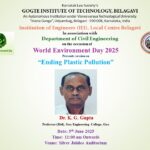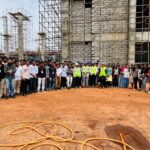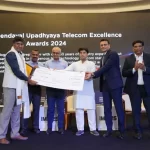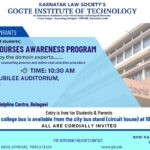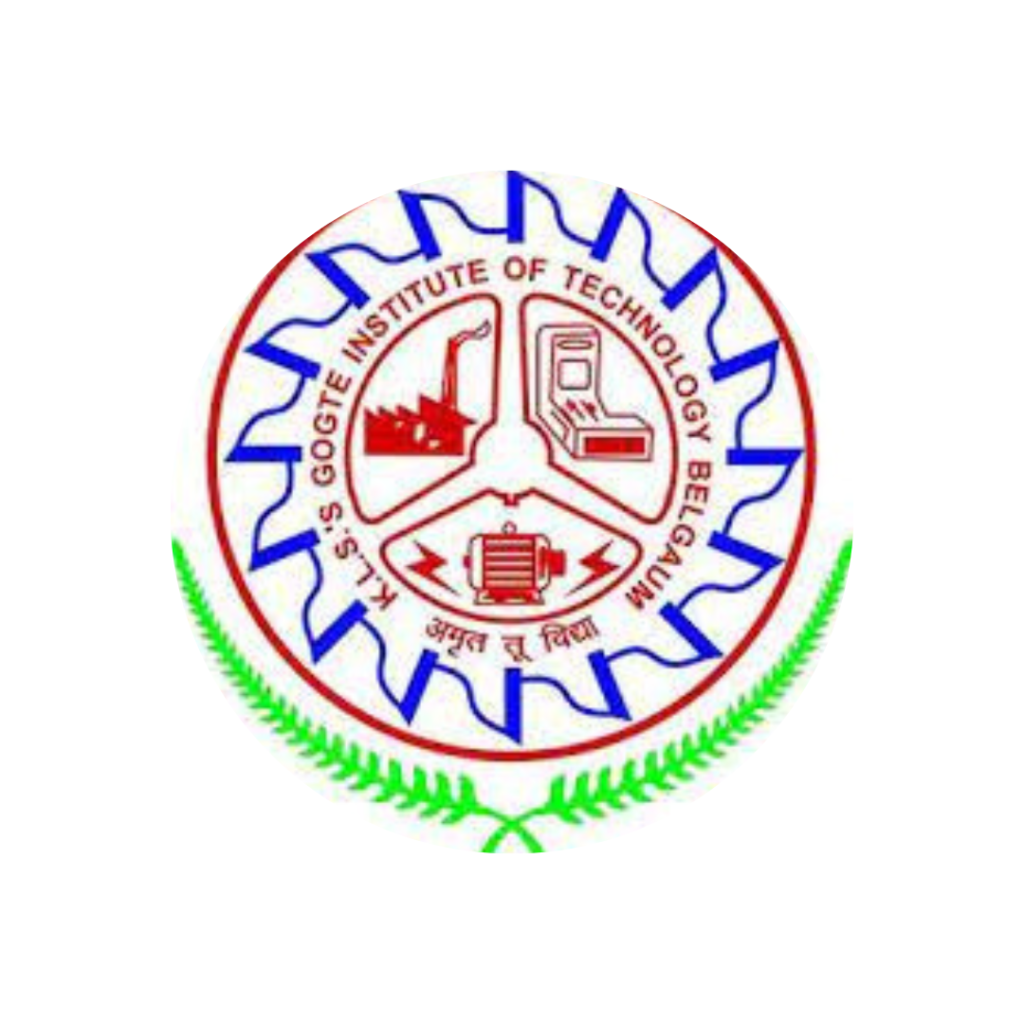Time Table
Calendar of Events
Upcoming Events
HODs Message
1. Engineering knowledge: Apply the knowledge of mathematics, science, engineering fundamentals, and an engineering specialization to the solution of complex engineering problems.
2. Problem analysis: Identify, formulate, research literature, and analyze complex engineering problems reaching substantiated conclusions using first principles of mathematics, natural sciences, and engineering sciences.
3. Design/development of solutions: Design solutions for complex engineering problems and design system components or processes that meet the specified needs with appropriate consideration for the public health and safety, and the cultural, societal, and environmental considerations.
4. Conduct investigations of complex problems: Use research-based knowledge and research methods including design of experiments, analysis and interpretation of data, and synthesis of the information to provide valid conclusions.
5. Modern tool usage: Create, select, and apply appropriate techniques, resources, and modern engineering and IT tools including prediction and modeling to complex engineering activities with an understanding of the limitations.
6. The engineer and society: Apply reasoning informed by the contextual knowledge to assess societal, health, safety, legal, and cultural issues and the consequent responsibilities relevant to the professional engineering practice.
7. Environment and sustainability: Understand the impact of the professional engineering solutions in societal and environmental contexts, and demonstrate the knowledge of, and need for sustainable development.
8. Ethics: Apply ethical principles and commit to professional ethics and responsibilities and norms of the engineering practice.
9. Individual and team work: Function effectively as an individual, and as a member or leader in diverse teams, and in multidisciplinary settings.
10. Communication: Communicate effectively on complex engineering activities with the engineering community and with society at large, such as, being able to comprehend and write effective reports and design documentation, make effective presentations, and give and receive clear instructions.
11. Project management and finance: Demonstrate knowledge and understanding of the engineering and management principles and apply these to one’s own work, as a member and leader in a team, to manage projects and in multidisciplinary environments.
12. Life-long learning: Recognize the need for, and have the preparation and ability to engage in independent and life-long learning in the broadest context of technological change.
Welcome to Department of Architecture
Architecture, as a synthesis of arts and science, requires integration of creative ideas and constructive practices. Department of Architecture was started by KLS society in 1998 with the aim of providing inspiring academic programme in an appropriate framework for learning. The Department offers Bachelor’s Degree in Architecture (B. Arch) under Visvesvaraya Technological University, Belgaum, approved by Council of Architecture, New Delhi. The department has excellent Academic environment with committed faculty and excellent leadership. Discipline & perfection are virtues nurtured in the department. The department strives to develop creativity and artistic skills among the students. Since its inception, students graduating from this institute have excelled in the university examinations and other competitions at state and national level. The Alumni of the department are either self employed or Working in leading Architectural firms in India and abroad. Architecture Department has made its impact in Karnataka and National Level at various platforms like architectural forums, student meets, competitions etc. Along with excellent education, the Department also offers consultancy services in the form of Design cell.
Welcome to Department of Chemistry
Department of Chemistry was established in the year 1979 as a supporting department to other programs of Engineering. The department is recognized as a research center in the year 2005 and offers Ph.D. and B.Sc. (Hons) Program, which is affiliated to VTU Belagavi. Department has established center for nanoscience and nanotechnology in the 2017. Department also undertakes the consultancy and testing work. The Department is having MoUs with Industries, which helps us to have research collaborations, student exchange programs, internships and projects. Major research areas are Nanotechnology, Kinetics, Synthetic medicinal Chemistry and Water quality studies. Our faculty members have published a good number research papers in reputed national and international journals and presented papers in National and international conferences.Welcome to Department of Physics
The Department of Physics came into existence since the inception of the Institute in the year 1979. The department possesses good infrastructure with spacious working area consisting of HOD’s Cabin, Staff Cabins, Physics Lab.-I and Lab.-II and a Centre of Excellence in Astrophysics for Undergraduate Programs. The Centre of Excellence is established with a memorandum of understanding(MOU) with Indian Institute of Astrophysics, Bengaluru. The department is also provided with a Research Centre for the students pursuing Ph.D. The department has well qualified, dedicated and self-motivated faculty members and the supporting staff. The attention of the faculty members is solely focused towards enhancement of scientific skills and academic performance of the students besides their interest in scientific research, more specifically in the areas of Materials Science and Astrophysics.Welcome to Department of Aeronautical Engineering
Aeronautical Engineering Department was started with a humble beginning from august 2017 with an intake of 60 students. Department of Aeronautical Engineering is equipped with advanced laboratories and curriculum structure where students can learn the subject by theoretically with hands on experiments. The field covers the knowledge in propulsion, aerodynamics, structure, avionics and performance stability streams which helps the students to investigate various aircraft characteristics including behaviors and related factors. Aeronautical Engineering Department prepares students for professional positions in industry, academia and other sectors through a comprehensive program of teaching.- Seminars & Projects
- Powerpoint & Video Presentations
- Quiz
- Engineering knowledge: Apply the knowledge of mathematics, science, engineering fundamentals, and an engineering specialization to the solution of complex engineering problems.
- Problem analysis: Identify, formulate, research literature, and analyze complex engineering problems reaching substantiated conclusions using first principles of mathematics, natural sciences, and engineering sciences.
- Design/development of solutions: Design solutions for complex engineering problems and design system components or processes that meet the specified needs with appropriate consideration for the public health and safety, and the cultural, societal, and environmental considerations.
- Conduct investigations of complex problems: Use research-based knowledge and research methods including design of experiments, analysis and interpretation of data, and synthesis of the information to provide valid conclusions.
- Modern tool usage: Create, select, and apply appropriate techniques, resources, and modern engineering and IT tools including prediction and modeling to complex engineering activities with an understanding of the limitations.
- The engineer and society: Apply reasoning informed by the contextual knowledge to assess societal, health, safety, legal, and cultural issues and the consequent responsibilities relevant to the professional engineering practice.
- Environment and sustainability: Understand the impact of the professional engineering solutions in societal and environmental contexts, and demonstrate the knowledge of, and need for sustainable development.
- Ethics: Apply ethical principles and commit to professional ethics and responsibilities and norms of the engineering practice.
- Individual and team work: Function effectively as an individual, and as a member or leader in diverse teams, and in multidisciplinary settings.
- Communication: Communicate effectively on complex engineering activities with the engineering community and with society at large, such as, being able to comprehend and write effective reports and design documentation, make effective presentations, and give and receive clear instructions.
- Project management and finance: Demonstrate knowledge and understanding of the engineering and management principles and apply these to one’s own work, as a member and leader in a team, to manage projects and in multidisciplinary environments.
- Life-long learning: Recognize the need for, and have the preparation and ability to engage in independent and life-long learning in the broadest context of technological change.
Welcome to Mathematics Department
The Department of mathematics was established in the year 1979 to teach mathematics to the students of other programs of Engineering. The Department of Mathematics has faculty strength of 12 members (1 Professor, and 11 Assistant Professors). Ten of them have doctoral degree. So far R & D centre of the department has produced 14 Ph.D. scholars. Active research is being pursued in the areas of Graph Theory, Fluid dynamics, Differential Geometry and many more. Our faculty members have published a good number of research papers in reputed national and international journals and presented papers in National and international conferences. The department of Mathematics offers courses for both graduate and post graduate students, by providing the foundation in mathematics that is crucial to the education of engineering students.- The graduates will acquire core competence in basic-science and engineering fundamentals necessary to formulate, analyze, and solve engineering problems and to pursue advanced study.
- The graduates will acquire capabilities to succeed as computer engineering professionals with an aptitude for higher education and entrepreneurship.
- The graduates will have the curiosity and desire of learning for life and self-confidence to adapt to changes.
- The graduates will maintain high professionalism and ethical standards, effective oral and written communication skills, work as part of teams on multidisciplinary projects under diverse professional environments, and relate engineering issues to the society, global economy and to emerging technologies
Welcome to Electrical and Electronics Engineering
The Department of Electrical & Electronics Engg., was started in the year 1979. The department conducts four years Bachelor of Engineering in Electrical & Electronics Engg degree course affiliated to Visvesvaraya Technological University, Belagavi. The course content includes the basics of Electrical Engineering and an exhaustive treatment on Electrical Machines, Electrical Networks, Electrical Power Systems, Power Generation, Transmission and Distribution, Computer Aided Stability and Load Flow analysis. The course also gives a substantial exposure to Analog & Digital Electronics, Power Electronics and Computer System and applications. The department offers and carries out projects in the conventional and relevant thrust areas of technology. Many of the projects undertaken by the department have been consistently sponsored by KSCST, Bengaluru. Under MODROB scheme (a scheme by central Govt. India) a well-equipped laboratory in Power Electronics has been setup. The department has full pledged laboratories to meet the requirements of University curriculum. The department offers consultancy services to meet the industrial needs in testing, calibration and High voltage testings. The department has well-qualified staff with expertise in Power Systems, Electronics and Computer Applications, assisted by skilled supporting staff. Electrical Engineering Association, a departmental organization provides a platform for students to exhibit their talents in various extracurricular activities. The students graduated from our dept have been securing good placements in Electrical Industries and Electronics and Computer fields. The Department has renewable club to facilitate the students to involve in renewable energy resources related activities. The Department has Institution of Engineers (India) Student Chapter which conducts various technical activities like Expert Talks, Technical Visits, Workshops and Conferences etc..
Welcome to Computer Science & Engineering
The Department of Computer Science and Engineering, at KLS Gogte Institute of Technology is one of the vibrant tech savvy and acclaimed departments in Karnataka. The Department has grown leaps and bounds over the years, which is witnessed by the various accreditation and ranking agencies such as NBA, NIRF etc. The Computer Science and Engineering Department offers B.E(Computer Science and Engg). M.Tech.(Computer Science and Engg) and Ph.D.(Computer Science and Engg). The Syllabi of these programmes are designed with focus on Artificial Intelligence, Machine Learning, Data Science, Sales Force Lightning and Robotic Process Automation by considering the requirement of time as well as the demand of the IT industry. The Department offers both M.Tech.(CSE) and Ph.D.(CSE) programmes in order to provide an opportunity to the young and enthusiastic IT professionals to have an extra edge, that makes a vital difference and contribute towards the ongoing IT research and development. The guidance and cooperation of the experienced and expert faculty members of the department and strong alumni association are the attracting features of the department, which has helped the students to outgrow beyond their limitations. The Department has state of the art class rooms, well equipped computing labs for research scholars, undergraduate and post graduate students. As a result of holistic development activities including curricular co-curricular extra- curricular conducted throughout the academic years, the students graduating from the department get placed in the leading IT industries even before the completion of their final semesters. There are plethora of companies, like TCS, Infosys, PWC, Texas Instruments, Mercedez Benz (R&D), Robert Bosch, Persistent Systems and Brillio etc. that recruit the passing out students each year through campus placement. The final semester students have the opportunity to work for four to six months as interns in the leading IT companies and other reputed R&D organizations.Welcome to Electronics & Communication Engineering
The Department was established during the inception of this institute in 1979. The undergraduate course B.E. in Electronics & Communication Engineering has an intake of 180. The Department offers M.Tech. in Digital Communication & Networking (D.C.N) which was started in 2004 currently with an intake of 18. The Department has well qualified and experienced faculty with an average teaching experience of 15-20 years having expertise in the fields of telecommunications, medical electronics, Embedded systems, Robotics and AI, Machine Learning and computer vision. The syllabus is prepared with inputs from industry and academia after a detailed discussion and deliberation. The department has established MoUs with companies to foster collaboration, innovation, and enhance academic knowledge to benefit the students. The Department is accredited by NBA since 2004, till the duration of 2025. The Department is permanently affiliated to VTU, Belagavi. The effectiveness of Outcome Based Education, Teaching Learning process in the department is reflected in the form of academic results, Placements, Admission to higher studies in India and abroad and Quality of projects done.
- Problem solving skills: Ability to identify and analyze problems of varying complexity and propose solutions by applying fundamental knowledge acquired in the field of Computer Science and Engineering.
- Project development skills: Ability to apply design principles and demonstrate best practices of software development processes to solve real life problems.
- Career advancement: Ability to demonstrate professional and leadership qualities required to pursue opportunities in Information Technology/self-employment/ higher studies.
PROGRAMME OUTCOMES (PO’s)
- Architectural Knowledge: Apply the requisite knowledge to create Architectural designs that satisfy aesthetic, functional and technical requirements for liveable habitats responding to divergent arts, cultural, social, physical and environmental contexts.
- Problem Analysis: Identify, formulate, review research literature and analyse complex Architectural design problems for reaching substantiated conclusions.
- Evolving Design Solutions: Design solutions for complex Architectural problems that meet the specified needs with appropriate consideration for the aesthetic, cultural, societal, economical, physical, environmental and technological concerns.
- Critical Thinking: Use analysis and interpretation of data, research-based knowledge, research methods and design approaches to critically evaluate and synthesize appropriate design solutions.
- Adaptability to latest Tools and Techniques: Learn and apply latest design softwares and techniques for representing and communicating Architectural designs.
- The Architect and Society: Apply Architectural skills to address complex issues concerning society, culture, health, safety and legal aspects to achieve holistic development.
- Environment and Sustainability: Understand the impact of the Architectural solutions in societal and environmental contexts and demonstrate the knowledge of, and need for creating healthy communities and sustainable development.
- Ethics: Apply ethical principles and commit to professional ethics and responsibilities and norms of the Architectural practice.
- Individual and Team-work: Function effectively as an individual and as a member or leader in diverse teams, and in multidisciplinary settings according to changing global scenarios.
- Communication: Apply communication skills to effectively manage challenging professional demands, to communicate, present, deliver ideas and design solutions.
- Project Management Skills: Demonstrate knowledge and understanding of the project financing and management principles and apply these to profession, individually or as a team to successfully manage complex projects in multidisciplinary environments.
- Life-long Learning: Recognize the need and ability to consistently engage in independent and lifelong learning in the ever changing global context.
- Flipped Classroom Learning
- Value Added Courses
- Instruction material reference
- Introduction to web programming
- Cyber Security
- Database Management Systems
- Unix programming 18cs53
- Social Connect & Responsibility
- Operating System
- Internet of Things
- Digital Electronics
- Microcontrollers and Embedded CLab Manuals
- C Programming
- Web Programming
- Database Management Systems
- Data Visualization
- Deign Thinking
PROGRAM EDUCATIONAL OBJECTIVES (PEOs)
1. The graduates will acquire core competence in basic science and Electronics & Communication fundamentals necessary to formulate, analyze, and solve engineering problems and to pursue advanced study or research.2. The graduates will engage in the activities that demonstrate desire for ongoing personal and professional growth and self-confidence to adapt to rapid and major changes.
3.The graduates will maintain high professionalism and ethical standards, effective oral and written communication skills, work as part of teams on multidisciplinary projects under diverse professional environments, and relate engineering issues to the society, global economy and to emerging technologies.
Welcome to Master of Computer Application Department
MCA@GIT was founded in the year 1999. From the last two decades this department has been nurturing graduates from the streams like BCA, BSc and BCom with excellent technical skills, managerial skills, soft skills and ethical values; as a result of which today our alumni are either successful IT professional in top notch IT companies, entrepreneurs or academicians. The speciality of MCA@GIT is its ability to provide state-of-the-art facilities and infrastructure with the backup of highly qualified and dedicated staff. Other than adopting conventional learning process, this department imparts knowledge through workshops, expert talks, certification programmes, cultural/technical programmes, internships etc. and has thus created its unique brand identity in the entire North Karnataka.Welcome to KLS Bachelor of Science
KLS Gogte Institute of Technology is organizing a “B.Sc. (Hons) Course awareness program” on 4th June,2023 at 10:30 AM in the GIT Campus. This program is designed to offer B.Sc. (Hons) in Physics, Chemistry and Mathematics. In addition, students will also study skill based and industry required topics from the emerging engineering disciplines such as Artificial Intelligence and Robotics, Machine Learning, Data Science, Cyber security, Python, Internet of Things etc. This B.Sc. (Hons) program is a right blend of Science and Engineering courses. The admission for B. Sc. (Hons) does not require CET ranking. The seat can be allotted only with PU marks..PROGRAM SPECIFIC OUTCOMES (PSOs) 1. The graduates will acquire core competence in basic science and Electronics engineering fundamentals necessary to formulate, analyze and solve engineering problems and to pursue advanced study or research
2. The graduates will engage in the activities that demonstrate desire for ongoing personal and professional growth and self-confidence to adapt to rapid and major changes.
3. The graduates will maintain high professionalism and ethical standards, effective oral and written communication skills, work as part of teams on multi-disciplinary projects under diverse professional environments and relate engineering issues to the society, global economy and to emerging technologies.
- The graduates will acquire core competence in basic science and Aeronautical engineering fundamentals necessary to formulate, analyze, and solve engineering problems and to pursue advanced study or research.
- The graduates will engage in the activities that demonstrate desire for ongoing personal and professional growth and self-confidence to adapt to rapid and major changes.
- The graduates will maintain high professionalism and ethical standards, effective oral and written communication skills, work as part of teams on multidisciplinary projects under diverse professional environments, and relate engineering issues to the society, global economy and to emerging technologies.
Programme Educational Objectives (PEO)
- PEO 1: To develop the ability among students to synthesize data and technical concepts for software design and development hence, prepare students for successful careers in software industry that meet the needs of Indian and multinational companies or to excel in Higher studies.
- PEO 2: To inculcate professional and ethical attitude amongst students with effective communication skills, teamwork skills, and an ability to relate engineering issues to broader social context.
- PEO 3: To provide students with an excellent academic environment, entrepreneur capabilities and to enable students for life-long learning needed to lead a successful professional career.
- PEO-1: The graduates shall acquire core competence in basic science and civil engineering.
- PEO-2: The graduates shall constantly pursue the professional growth with multidisciplinary outlook.
- PEO-3: The graduates shall work with high professionalism and ethical standards.
- PEO-4: Graduates shall be responsive to societal needs for sustainable development
- The graduates will acquire core competence in basic science and mechanical engineering fundamentals necessary to formulate, analyze, and solve engineering problems and to pursue advanced study or research.
- The graduates will engage in the activities that demonstrate desire for ongoing personal and professional growth and self-confidence to adapt to rapid and major changes.
- The graduates will maintain high professionalism and ethical standards, effective oral and written communication skills, work as part of teams on multidisciplinary projects under diverse professional environments, and relate engineering issues to the society, global economy and to emerging technologies.
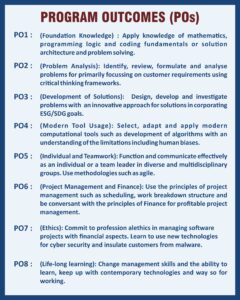
- The graduates will acquire core competence in fundamentals of Electrical and Electronics Engineering necessary to formulate, design, analyze, solve engineering problems and pursue career advancement through professional certifications and take up challenging professions and leadership positions.
- The graduates will engage in the activities that demonstrate desire for ongoing professional and personal growth with self-confidence to adapt to rapid changes.
- The graduates will maintain high professionalism, ethical values, effective oral and written communication skills and work as part of teams on multidisciplinary projects under diverse professional environments and safeguard social interests.
- An ability to identify, formulate and apply knowledge of mathematics, science to solve Aeronautical engineering problems keeping in mind economical, environmental and social context.
- A Knowledge of contemporary issues and an ability to use the techniques, skills and modern engineering tools necessary to engage in lifelong learning in the field of Aerodynamics, propulsion, Avionics and structures streams.
- An ability to work in multidisciplinary projects professionally and ethically.
Program Specific Outcomes (PSOs)
- PSO 1: Problem Solving Skills - An ability to analyze a problem design, Implement and evaluate software solutions related to algorithms, system software, web design, big data analytics and networking.
- PSO 2: Professional Skills An ability to develop standard software solutions for an Existing and emerging industry verticals and research domains.
- PSO 3: Career Skills - An ability to harness Information Science and Engineering Knowledge with ethics and societal concern for career and further educational abilities along with entrepreneurial skills.
- Engineering Knowledge: Apply the knowledge of basic sciences and engineering fundamentals to solve engineering problems.
- Problem Analysis: Analyze the complex engineering problems and give solutions related to chemical & allied industries.
- Design/ development of solutions: Identify the chemical engineering problems, design and formulate solutions to solve both industrial & social related problems.
- Conduct investigations of complex problems: Design & conduct experiments, analyze and interpret the resulting data to solve Chemical Engineering problems.
- Modern tool usage: Apply appropriate techniques, resources and modern engineering & IT tools for the design, modeling, simulation and analysis studies.
- The engineer and society: Assess societal, health, safety, legal and cultural issues and their consequent responsibilities relevant to professional engineering practice.
- Environment and sustainability7.: Understand the relationship between society, environment and work towards sustainable development.
- Ethics: Understand their professional and ethical responsibility and enhance their commitment towards best engineering practices.
- Individual and team work: Function effectively as a member or a leader in diverse teams, and be competent to carry out multidisciplinary tasks.
- Communication: Communicate effectively in both verbal & non-verbal and able to comprehend & write effective reports.
- Project management and finance: Understand the engineering and management principles to manage the multidisciplinary projects in whatsoever position they are employed.
- Life-long learning: Recognize the need of self education and life-long learning process in order to keep abreast with the ongoing developments in the field of engineering
- The graduates will acquire core competence in basic science and mechanical engineering fundamentals necessary to formulate, analyze and solve engineering problems and to pursue advanced study or research
- The graduates will engage in the activities that demonstrate desire for ongoing personal and professional growth and self-confidence to adapt to rapid and major changes.
- The graduates will maintain high professionalism and ethical standards, effective oral and written communication skills, work as part of teams on multi-disciplinary projects under diverse professional environments and relate engineering issues to the society, global economy and to emerging technologies
| Semester | Credits per Semester | Total credits | |
| 1st year | 1 | 22 | 43 |
| 2 | 21 | ||
| 2nd year | 3 | 21 | 37 |
| 4 | 16 | ||
| Total | 80 | ||
| Sl. No. | Course | Credits | |
| 1. | Integrated Professional Core Course | IPCC | 45 |
| 2. | Professional Core Course | PCC | 4 |
| 3. | Professional Elective Course | PEC | 12 |
| 4. | Basic Science | BSC | 4 |
| 5. | Non Credit Mandatory Course | NCMC | 0 |
| 6. | Ability Enhancement Course | AEC | 0 |
| 7. | Project | PROJ | 11 |
| 8. | Internship | MINT | 3 |
| 9. | Technical Seminar | TS | 1 |
| 80 | |||
- Outcome Based Education (OBE) practiced in department Course seminar and course projects in every semester specially on specific core subjects
- Industrial/ Research internships of six to eight weeks for students in aeronautical / mechanical domain Certification courses on branch specific subjects along with English/ German language courses.
- Industry expert talk in every semester from industry specialist in specific domain Active student chapters- ASME & VAYUPUTRAS.
- Department support for Regular participation in various competitions & events hosted by IITs, national and international level top colleges and universities globally.
- Industry driven labs/elective courses like flight mechanics, AMRO, Rockets and missiles, ATC etc. Open ended experiments in each laboratory.
- During final year, exclusive 6 months slot for students to take up industrial/research projects
Program Outcomes
- Engineering knowledge: Apply the knowledge of mathematics, science, engineering fundamentals & an engineering specialization to the solution of complex engineering problems.
- Problem analysis: Identify, formulate, review research literature & analyze complex engineering problems reaching substantiated conclusions using first principles of mathematics, natural sciences, & engineering sciences
- Design / development of solutions: Design solutions for complex engineering problems & design system components or processes that meet the specified needs with appropriate consideration for public health & safety, the cultural, societal & environmental considerations.
- Conduct investigations of complete problems: Use research based knowledge & research methods including design of experiments, analysis & interpretation of data, synthesis of the information to provide valid conclusions.
- Modern tool usage: Create, select & apply appropriate techniques, resources & modern engineering IT tools including prediction, modeling to complex engineering activities with an understanding of the limitations.
- The engineer and society: Apply reasoning informed by the contextual knowledge to assess societal, health, safety, legal & cultural issues & the consequent responsibilities relevant to the professional engineering practice.
- Environment and sustainability: Understand the impact of the professional engineering solutions in societal & environmental contexts & demonstrate the knowledge of & the need for sustainable development.
- Ethics: Apply ethical principles & commit to professional ethics & responsibilities & norms of the engineering practice.
- Individual and team work: Function effectively as an individual & as a member or leader in diverse teams & in the multidisciplinary settings.
- Communication: Communicate effectively on complex engineering activities with the engineering community & with society at large, such as being able to comprehend & write effective reports & design documentation, make effective presentations, and give and receive clear instructions.
- Project management and finance: Demonstrate knowledge & understanding of the engineering & management principles & apply these to one’s own work, as a member and leader in a team, to manage projects and in multidisciplinary environments.
- Life-long learning: Recognize the need for, have the preparation & ability to engage in independent and life-long learning in the broadest context of technological change.
Programme Specific Objectives (PSO)
-
- PSO-1 Understanding and applying the mathematical and scientific concepts for analytical and design skills concerned with civil engineering practice.
- PSO-2 Inculcating communicational skills, and leadership attributes towards the team work Developing critical thinking abilities with competence in use of computational tools for current research.
- PSO-3 Sensitizing towards contemporary issues, societal needs with professionalism and ethics for sustainable development.
- Engineering knowledge: Apply the knowledge of mathematics, science, engineering fundamentals, and an engineering specialization to the solution of complex engineering problems.
- Problem analysis: Identify, formulate, research literature, and analyze complex engineering problems reaching substantiated conclusions using first principles of mathematics, natural sciences, and engineering sciences.
- Design/development of solutions: Design solutions for complex engineering problems and design system components or processes that meet the specified needs with appropriate consideration for the public health and safety, and the cultural, societal, and environmental considerations.
- Conduct investigations of complex problems: Use research-based knowledge and research methods including design of experiments, analysis and interpretation of data, and synthesis of the information to provide valid conclusions.
- Modern tool usage: Create, select, and apply appropriate techniques, resources, and modern engineering and IT tools including prediction and modeling to complex engineering activities with an understanding of the limitations.
- The engineer and society: Apply reasoning informed by the contextual knowledge to assess societal, health, safety, legal, and cultural issues and the consequent responsibilities relevant to the professional engineering practice.
- Environment and sustainability: Understand the impact of the professional engineering solutions in societal and environmental contexts, and demonstrate the knowledge of, and need for sustainable development.
- Ethics: Apply ethical principles and commit to professional ethics and responsibilities and norms of the engineering practice.
- Individual and team work: Function effectively as an individual, and as a member or leader in diverse teams, and in multidisciplinary settings.
- Communication: Communicate effectively on complex engineering activities with the engineering community and with society at large, such as, being able to comprehend and write effective reports and design documentation, make effective presentations, and give and receive clear instructions.
- Project management and finance: Demonstrate knowledge and understanding of the engineering and management principles and apply these to one’s own work, as a member and leader in a team, to manage projects and in multidisciplinary environments.
- Life-long learning: Recognize the need for, and have the preparation and ability to engage in independent and life-long learning in the broadest context of technological change.

Best Practices of the Departments
- Outcome Based Education (OBE) is practiced in the department.
- Students are prepared for Internship in various MNC's such as PWC, Infosys and Wipro.
- Industry driven Honors courses such as Data Science and Internet of Things (loT).
- Department has introduced Industry driven courses in the curriculum such as Data Science, loT, Salesforce, Agile, Python.
- Certification Course on branch specific subjects with Foreign Languages.
- Salesforce Industry training for students and staff.
- NPTEL Certification Courses for students and Faculty.
- Conducting training for students on Industry relevant subjects by inviting Alumni.
- Deputation of faculty for training / post Ph.D research interaction to reputed organizations.
- Holistically designed curriculum
- Modernization of Laboratories- a continuous process.
- Usage of Modern teaching aids
- Offers consultancy services for Government and Private agencies.
- Industry experts talks, Alumni talks, Short term training programs, Webinars etc..
- Continuing Education Programs for Practicing Engineers.
- Extends laboratory facilities to Students/ Faculty from other Departments/ Institutes to carry out research.
- Publication in reputed journals.
- Encouraging Students Publications.
Placements
Students of the department are trained to get placed in the well-established organizations with a handsome salary. The highest salary offered in the year 2021-22 was 12.60 LPA, in the year 2022-23 i.e. last year record breaking package of 58 LPA. The most minimum placement offer bagged by students are on an average of 3.0 - 4.5 LPA.
A dedicated training and placement office is established in the college which trains the students on a regular basis with the skills required for the placement activities. Students are encouraged to take up internships in recognized organizations which help them in having an exposure to the industry work pattern.
Many of ISE branch students got good placement opportunities in well recognized MNCs like Infosys, TCS and Wipro etc. Some of them have got an opportunity as interns in international companies including TEXAS Instruments, PWC, SAMSUNG etc. during their final semester.
The new record breaking placement offer to our final semester student is Rs.58 Lakh per year in MNC Palo-Alto working on Salesforce software development platform.
- Engineering Knowledge: Apply knowledge of mathematics, science, engineering fundamentals and an engineering specialization to the solution of complex engineering problems.
- Problem Analysis: Identify, formulate, research literature and analyze complex engineering problems reaching substantiated conclusions using first principles of mathematics, natural sciences and engineering sciences.
- Design/ Development of Solutions: Design solutions for complex engineering problems and design system components or processes that meet specified needs with appropriate consideration for public health and safety, cultural, societal and environmental considerations.
- Conduct investigations of complex problems using research-based knowledge and research methods including design of experiments, analysis and interpretation of data and synthesis of information to provide valid conclusions.
- Modern Tool Usage: Create, select and apply appropriate techniques, resources and modern engineering and IT tools including prediction and modeling to complex engineering activities with an understanding of the limitations.
- The Engineer and Society: Apply reasoning informed by contextual knowledge to assess societal, health, safety, legal and cultural issues and the consequent responsibilities relevant to professional engineering practice.
- Environment and Sustainability: Understand the impact of professional engineering solutions in societal and environmental contexts and demonstrate knowledge of and need for sustainable development.
- Ethics: Apply ethical principles and commit to professional ethics and responsibilities and norms of engineering practice.
- Individual and Team Work: Function effectively as an individual, and as a member or leader in diverse teams and in multidisciplinary settings.
- Communication: Communicate effectively on complex engineering activities with the engineering community and with society at large, such as being able to comprehend and write effective reports and design documentation, make effective presentations and give and receive clear instructions.
- Project Management and Finance: Demonstrate knowledge and understanding of engineering and management principles and apply these to one’s own work, as a member and leader in a
- Life-long Learning: Recognize the need for and have the preparation and ability to engage in independent and lifelong learning in the broadest context of technological change.

Welcome to Department of MBA
The Department of MBA at KLS Gogte Institute of Technology is committed to delivering excellence in management education and fostering a conducive environment for academic and professional growth. Building on its two-year full-time Master of Business Administration (MBA) program, the department operates autonomously under the aegis of Visvesvaraya Technological University (VTU), Belagavi, and holds recognition from the All India Council for Technical Education (AICTE). Our MBA program is meticulously crafted to deliver an in-depth understanding of management theories and methodologies, while fostering the critical analytical, strategic, and leadership agility required to drive innovation and achieve success in a rapidly evolving global business environment. Read MoreKey Factors to Pursue Information Science and Engineering at GIT
The Department of Information Science and Engineering is one among the popular undergraduate programs at KLS Gogte Institute of Technology, Belagavi. The department follows Outcome Based Education (OBE) with dedication and comprises well-qualified and research-oriented faculty members who possess a thorough understanding of their domains. These faculty members are committed to nurturing students into knowledgeable individuals. They have published 150+ research papers in reputed international and national journals.
The department has a ACM student chapter, a globally recognized professional body that provides a platform for students to connect with eminent personalities from the research,science, academia, and industry sectors across the world.
The department has a strong alumni base that regularly assists students with project work, internships, career guidance, and knowledge sharing sessions. It also has a strong industry connect with industry professionals involved in the framing of the syllabus, delivering of the subjects, conduction of workshops, and student development programs to expose students to industry standards.
The department offers various industry-driven subjects such as Salesforce, Robotic Process Automation, and Data Science, which prepare students for the industry. It has signed an MoU with the Internet Society-Rural Development-Special Interest Group (ISOC-RD-SIG), which focuses on providing training to students on the various technologies involved in the information science stream.
The department has well-equipped labs for Internet of Things (IoT), Data Science, and programming labs with high-end computing infrastructure. There is also a special interest group in the IoT field that provides a platform for interested students to work on projects using various IoT kits available. Overall, the ISE department is a multi-faceted and all-rounded academic department that focuses on every aspect of the teaching-learning process and the all-round development of its students.

Welcome to Civil Engineering Department
The Department of Civil Engineering was established in 1979 to offer B.E. in Civil Engineering. The M.Tech. programme in Structural Engineering was added in the year 1986. Research environment was initiated in 2004 by establishing the research centre under VTU, Belagavi to offer Ph.D. in Civil Engineering sciences. The department enjoys the services of the dedicated faculty with expertise and specialization in all the major areas of Civil Engineering. The faculty have published 70+ technical papers in reputed journals; presented several papers in prestigious National and International conferences. All the laboratories are well equipped with state-of-the-art testing facilities. The department offers quality assurance & material testing facility and consultancy services to various organizations. It is also involved in the third party inspection of civil works, construction auditing etc. The department regularly organizes STTPs/ workshops, conferences, training programmes. at regional and national levels. The department has been recognized as a training centre by Karnataka Engineering Research Station (KERS), Mysore to impart training to the Engineers of Govt. of Karnataka under continuing education programmes. Many students graduated from the Civil Engineering Department have occupied top positions in prestigious organizations across the globe, besides entrepreneurs and professionals.- To demonstrate an understanding of the basic concepts Electrical and Electronics technology with an adequate knowledge of mathematics and science during problem analysis, formulation of solutions, design and development activities.
- To demonstrate an understanding of the concepts of the core Electrical Engineering aspects such as Electrical machines and Power systems during real time analysis, design and operation.
- To demonstrate an understanding of the concepts of Electronics technology in the form of Analog and Digital Electronics, Microprocessors and embedded systems required in data acquisition, data processing, automation and control applications and demonstrate capability to comprehend the technological advancements and usage of modern tools keeping up lifelong learning attitude.
- To demonstrate good managerial and entrepreneurship skills embedded with good communication skill, team work attitude professional ethics and the concern for societal and environmental goodness.






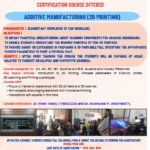
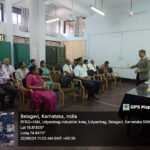
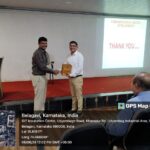
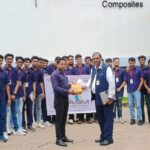
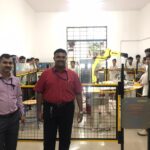
![IIF Student Chapter [Institute of Indian Foundry Men]](https://git.edu/wp-content/uploads/2024/06/WhatsApp-Image-2024-06-21-at-2.27.02-PM-150x150.jpeg)
